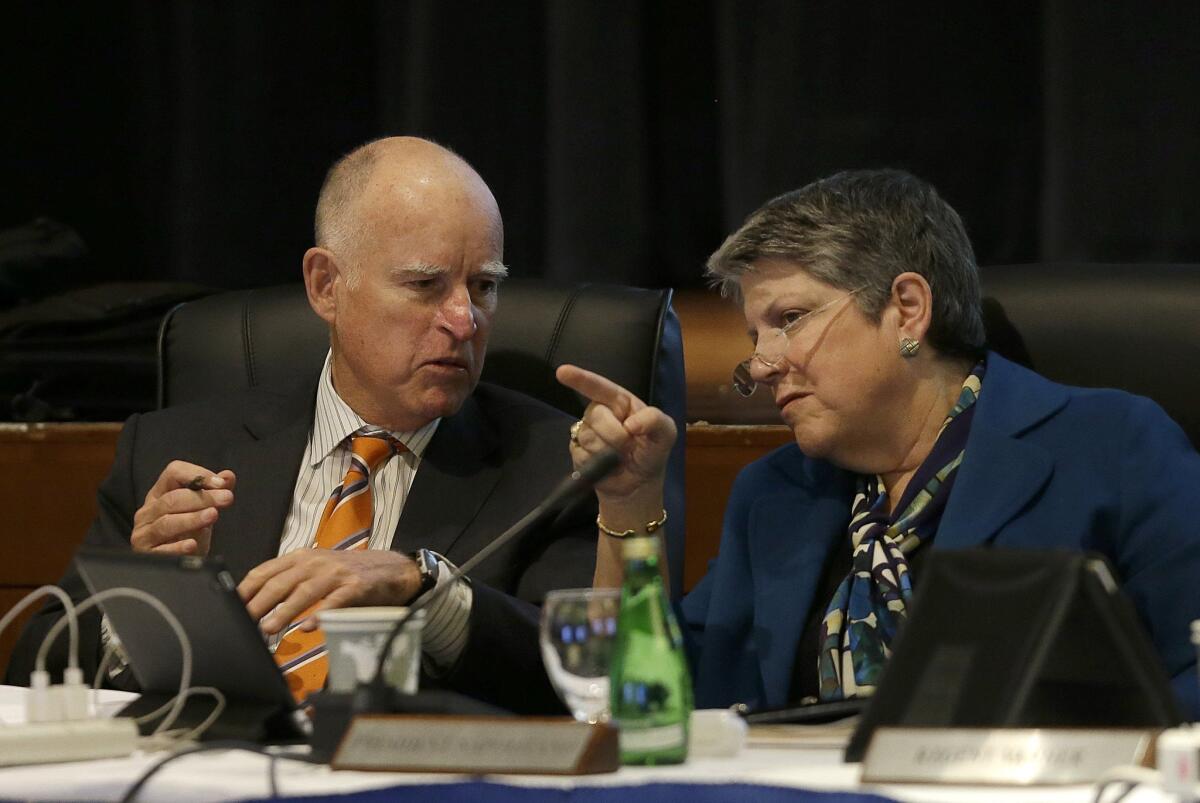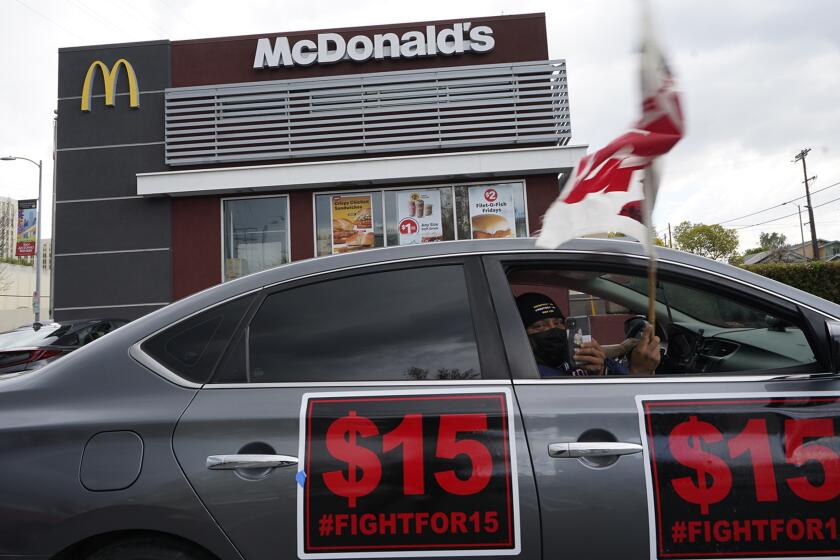Op-Ed: To fix Californiaâs colleges, reform Prop. 13 by taxing corporations more

Gov. Jerry Brown talks with University of California president Janet Napolitano during a UC Board of Regents meeting in San Francisco on March 18.
This yearâs very public showdown between Gov. Jerry Brown and University of California President Janet Napolitano over raising UCâs tuition ended in a compromise that in no way addressed the real issue: Where will the money come from to keep the stateâs world-class public colleges and universities competitive in the long term?
As Napolitano and Brown squabbled over how much the state could afford to pay into UCâs coffers, they expressly avoided the real solution to public educationâs money worries: Reform the commercial side of Proposition 13 so the state can raise more revenue. California could raise $9 billion a year for education and public services if commercial property taxes were reassessed regularly. And note: Such a reform would not affect Proposition 13âs protections for homeowners.
Politicians of both parties [consider] reforming Proposition 13 to be a third rail: Touch it and die. But Californians simply cannot afford to accept this any longer.
The governor, and many other politicians of both parties, considers reforming Proposition 13 to be a third rail: Touch it and die. But Californians simply cannot afford to accept this any longer.
Many people do not realize that the famous 1970s âtaxpayer revoltâ proposition applies not just to residences and homeowners but also to commercial properties and corporations. In fact, it has given commercial property owners more significant benefits than homeowners.
Since the measureâs passage, commercial properties in California have paid a progressively decreasing share of property taxes, a source of revenue that accounted for most of our stateâs budget before Proposition 13. Today, many of the wealthiest corporations in the state still pay taxes based on the values of their properties in 1975. Chevron alone saves more than $100 million a year in property taxes while, per square foot, Walt Disney Co. pays eight times less than the average California homeowner.
And while corporations take advantage of excessive tax breaks, students, their families and their communities bear more of the burden of paying the increasing cost to educate a growing and diverse state. Ironically, these same corporations often complain about the limited supply of high-quality college graduates.
Much has changed since the 1970s; at that time, the Master Plan for Higher Educationâs vision of tuition-free universities was a reality, the number of institutions of higher education in the state was growing rapidly and California ranked in the top five states for K-12 per-pupil education spending. Now, we are facing a projected shortage of college graduates, UC tuition has doubled in just one decade due to the drastic cuts in state funding and we rank 46th in the nation in per-pupil spending. Student tuition and private philanthropy surpassed the stateâs support for the UC system long ago.
But what has not changed are the property taxes paid by some of the largest and most profitable commercial enterprises in the state.
Affordable, high-quality education has immense social, political and economic benefits. Californiaâs colleges and universities prepare the stateâs workforce, do basic research and foster innovation â all crucial for economic growth and business success. Corporations must invest more in the education system that benefits us all; they must pay their fair share.
That means California must doing what virtually every other state in the country does: regularly reassess commercial properties at fair market value.
As more and more students vie to attend the UCs, the Cal States and our community colleges, and as we strive to recover fully from the economic downturn and to reestablish Californiaâs education system as the gold standard, we should stop allowing corporations to underinvest in our students and our future.
More than 700 elected state officials, and, according to polls conducted by the Public Policy Institute of California, the majority of the stateâs voters agree. Sacramento and Gov. Brown: You must tackle Proposition 13 reform.
Robert J. Birgeneau, a physics professor at UC Berkeley, was chancellor of that campus for nine years.
Follow the Opinion section on Twitter @latimesopinion and Facebook
More to Read
A cure for the common opinion
Get thought-provoking perspectives with our weekly newsletter.
You may occasionally receive promotional content from the Los Angeles Times.










